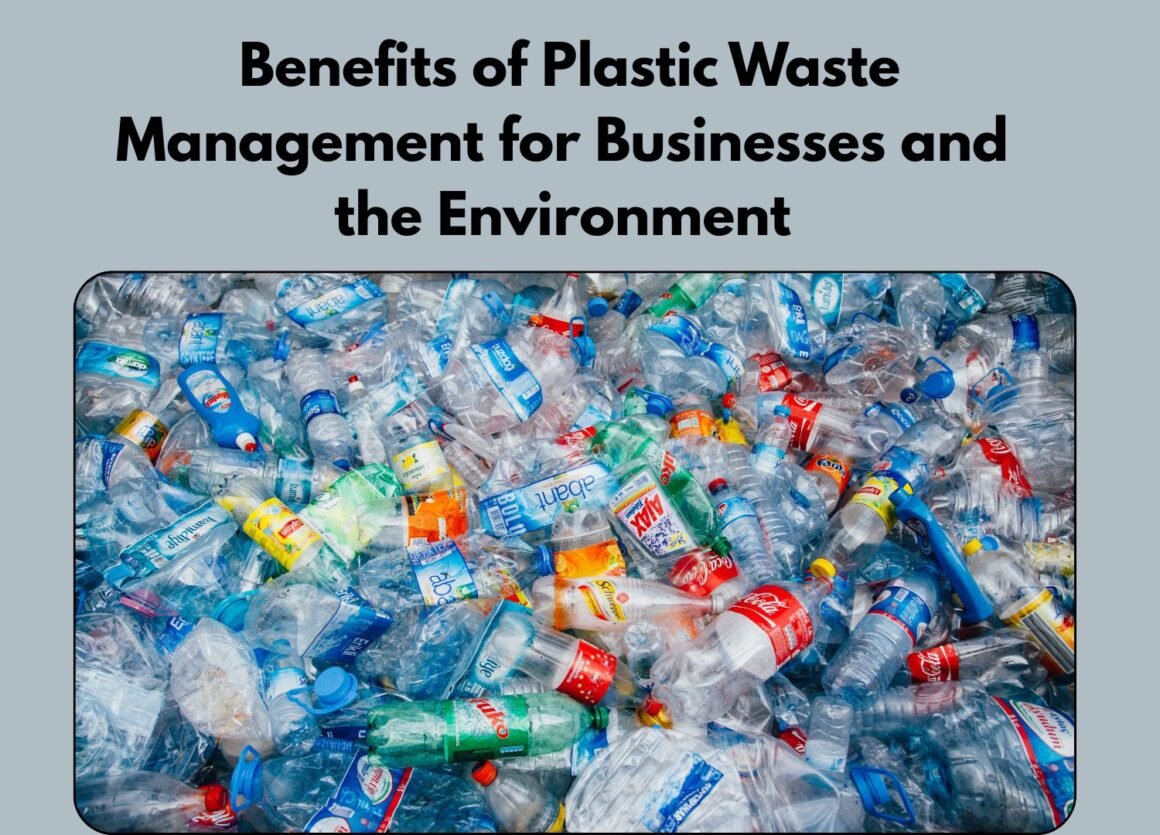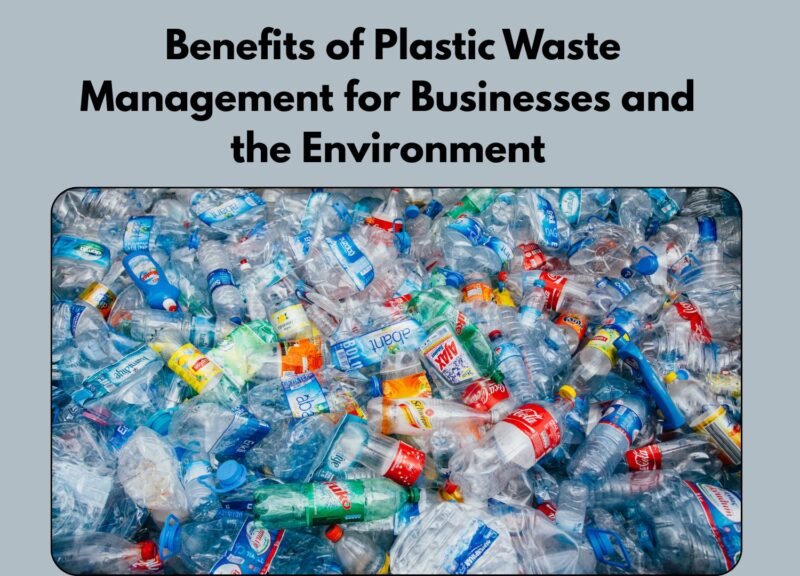Benefits of Plastic Waste Management for Businesses and the Environment

Plastic waste has become one of the most pressing environmental challenges of our time. With India generating more than 3.4 million tonnes of plastic waste annually, according to the Central Pollution Control Board (CPCB), the need for effective plastic waste management (PWM) is more important than ever.
While PWM is often seen as a regulatory requirement, especially under the Plastic Waste Management Rules 2016 (amended in 2022), it also offers significant advantages for both businesses and the environment. This article explores the economic, operational, and ecological benefits of plastic waste management and explains why it should be a priority for companies in India.
What Is Plastic Waste Management?
Plastic Waste Management refers to the collection, segregation, recycling, and responsible disposal of plastic waste to minimize pollution and promote sustainability. In India, it is governed by the PWM Rules 2016 (amended in 2022), which introduced Extended Producer Responsibility (EPR) to hold producers, importers, and brand owners (PIBOs) accountable for the lifecycle of plastic packaging.
Business Benefits of Plastic Waste Management
1. Compliance with Legal Requirements
Under PWM Rules 2022, all Producers, Importers, and Brand Owners must register on the CPCB EPR portal and fulfill recycling targets. Non-compliance can result in environmental compensation, business shutdowns, and legal action.
Benefit: Proper compliance protects businesses from penalties and improves regulatory credibility.
2. Enhances Brand Reputation and ESG Score
Consumers today prefer sustainable brands. Companies that adopt eco-friendly waste management practices build a strong Environmental, Social, and Governance (ESG) score.
Benefit: Improves customer trust, investor confidence, and corporate image.
3. Cost Savings Through Waste Recycling
Recycling plastic reduces procurement costs by allowing reprocessing and reuse of plastic packaging. Companies can also sell surplus plastic waste to recyclers.
Benefit: Converts waste into revenue and reduces raw material costs.
4. Competitive Market Advantage
Companies that highlight their sustainability efforts and EPR compliance attract environmentally conscious customers and global partners.
Benefit: Better market positioning and global business opportunities.
5. Business Partnerships Under EPR Framework
Plastic Waste Management enables collaboration with PROs (Producer Responsibility Organizations), recyclers, and waste aggregators.
Benefit: Strengthens circular supply chain and ensures compliant operations.
6. Innovation in Packaging Solutions
PWM encourages companies to explore sustainable packaging, including biodegradable and recyclable materials.
Benefit: Drives innovation and product improvement.
Benefits of Plastic Waste Management for Businesses and the Environment
1. Reduces Land and Water Pollution
Improper disposal of plastic clogs drains, contaminates soil, and pollutes water bodies. PWM ensures responsible management.
Environmental Impact: Cleaner oceans, rivers, and public spaces.
2. Conserves Natural Resources
Recycling plastic reduces dependence on petroleum-based raw materials.
Environmental Impact: Saves energy and minimizes resource extraction.
3. Reduces Greenhouse Gas Emissions
Plastic recycling requires significantly less energy than producing new plastic.
Environmental Impact: Helps in achieving Net-Zero and climate goals.
4. Promotes Sustainable Development
PWM encourages resource conservation and environmental protection.
Environmental Impact: Supports India’s Swachh Bharat Mission and circular economy initiatives.
5. Prevents Harm to Wildlife
Plastic waste harms marine and terrestrial animals who ingest or get trapped in it.
Environmental Impact: Protects biodiversity and ecosystems.
Social Benefits of Plastic Waste Management
Plastic waste recycling and collection provide livelihood opportunities to lakhs of waste workers across India.
Impact on Society: Generates employment and supports informal waste picker communities.
Economic Opportunities from PWM
Benefits of Plastic Waste Management for Businesses and the Environment has emerged as a growing industry in India. Startups and MSMEs are tapping into recycling technologies like:
- Mechanical recycling
- Chemical recycling
- Pyrolysis for fuel recovery
- Plastic-to-roads technology
Business Potential: India’s plastic recycling industry is expected to reach $6.9 billion by 2030.
Conclusion: Benefits of Plastic Waste Management for Businesses and the Environment
The benefits of Plastic Waste Management for Businesses and the Environment is not just an environmental obligation but a strategic opportunity for businesses. By adopting PWM and complying with EPR regulations, companies can reduce costs, improve their reputation, and contribute to a greener planet. At the same time, effective plastic waste management promotes sustainability, resource efficiency, and environmental protection.
Benefits of Plastic Waste Management for Businesses and the Environment is the future of responsible business in India—those who adopt it today will lead the sustainable market tomorrow.
FOR MORE BLOGS – beyondthepunchlines.com

 Add to favorites
Add to favorites








